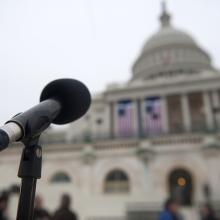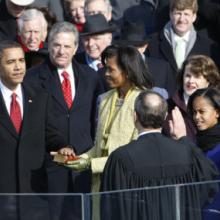Bibles
The U.S. Navy will no longer allow Bibles and other religious materials in the guest rooms of Navy lodges, a decision that has infuriated some conservative groups, which recently learned about the new policy.
The Navy’s decision came after the Freedom From Religion Foundation sent a letter questioning the constitutionality of religious literature in the Navy lodges’ 3,000 guest rooms.
The June 19 directive from the Navy Exchange Service Command, which runs the Navy’s 39 guest lodges in the U.S. and abroad, allows religious materials to be made available to guests. But it forbids religious items to be placed in guest rooms, aligning the command, known as NEXCOM, with U.S. Navy policy, said NEXCOM spokeswoman Kathleen Martin.
On Tuesday the American Family Association made the directive the subject of its latest “action alert,” asking members to call Navy officials to reverse the decision. The Chaplains Alliance for Religious Liberty has called on the Navy to do the same.
But supporters of the Navy directive, said it rights a constitutional wrong, in that the Establishment Clause does not allow the U.S. government to promote or favor any particular religion.
President Obama will publicly take the oath of office on two Bibles once owned by his political heroes, Abraham Lincoln and the Rev. Martin Luther King Jr. One Bible was well read, but cited cautiously, the other granted scriptural sanction to the civil rights movement.
When Obama lifts his hands from the Bibles and turns to deliver his second inaugural address on Monday (Jan. 21), his own approach to Scripture will come into view. Characteristically, it sits somewhere between the former president and famous preacher.
His faith forged in the black church, Obama draws deeply on its blending of biblical narratives with contemporary issues such as racism and poverty. But like Lincoln, Obama also acknowledges that Americans sometimes invoke the same Bible to argue past each other, and that Scripture itself counsels against sanctimony.
Obama articulated this view most clearly in a 2006 speech, saying that secularists shouldn’t bar believers from the public square, but neither should people of faith expect America to be one vast amen corner.
“He understands that you can appeal to people on religious grounds,” said Jeffrey Siker, a theology professor at Loyola Marymount University in California who has studied Obama’s speeches. ”But you also have to be able to translate your case into arguments that people of different faiths, or no faith, can grasp.”
WASHINGTON — President Obama will take the oath of office with two Bibles that once belonged to a pair of civil rights icons: Abraham Lincoln and Martin Luther King Jr.
King’s “traveling Bible” was provided by his family, while the Lincoln Bible is from the Library of Congress and was used during the 16th president’s inauguration on March 4, 1861; Obama also used the Lincoln Bible during his first inauguration in 2009.
The Lincoln and King good books will be used during this year’s public swearing-in ceremony on Jan. 21, the Presidential Inaugural Committee announced. King’s Bible will be stacked atop Lincoln’s.
“President Obama is honored to use these Bibles at the swearing-in ceremonies,” said Steve Kerrigan, president and CEO of the inaugural committee. “These Bibles are rich in tradition and reflect the great American story that binds our nation.”
JERUSALEM — Israeli postal workers outside Tel Aviv are refusing to deliver thousands of copies of the New Testament and other Hebrew-language Christian materials.
Israel media reported Tuesday (March 6) that dozens of religious and secular Jewish mail deliverers jointly informed their supervisors that disseminating the materials goes against their religious beliefs.
The workers, who deliver mail in Ramat Gan, assert that delivering the items would be tantamount to proselytizing and therefore a violation of Jewish law.



